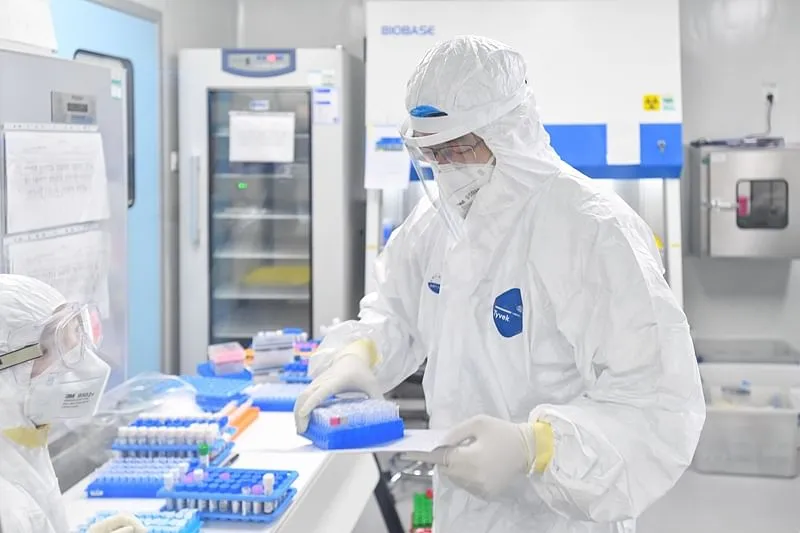Prevalence of COVID19 among general population in Kashmir is yet to be ascertained with minuscule random testing and most sampling being focused on target groups.
GMC Srinagar recently started an ICMR sero-surveillance study of COVID19 in Pulwama district. The study based on 400 samples from each of the 40 districts across India aims to pick up trends in spread of COVID19. Earlier, SKIMS Soura had initiated testing of all patients admitted to the hospital with respiratory infections. However, a senior physician in Kashmir said that apart from these “minuscule samples,” no random testing has been carried out in Kashmir to determine whether there is any community spread of COVID19.
At over 2 lakh tests till 5 June, the number of tests per million in J&K stood at 16000, highest among all states and UTs in India. However, the doctor said, most of the testing has been carried out among people returning from outside and contacts of those who test positive. He said in the past one month, J&K Government had expanded testing to cover most pregnant women nearing their date of delivery. In addition, some service providers such as bakers, butchers, pharmacists and others had also been sampled recently. “That is about it. No further groups have been covered much,” he said.
“Community transmission means the source of infection remains unidentified,” said Dr Aejaz Nabi Koul, additional professor medicine and clinician in-charge for COVID19 at SKIMS Soura. He said their experience with patients showed “3 to 5 percent cases fitting into untraced sources of transmission.” “If not florid community transmission but cluster transmission is already set in here,” he said.
“Our prevalence is skewed because we are testing specific groups. We need to test more out of these groups, isolate and contact trace,” the physician said, adding that sans testing, it was difficult to comment on whether or not there has been any community spread of COVID19 in Kashmir.
Dr S Saleem Khan, head department of social and preventive medicine at GMC Srinagar, who is also the nodal officer COVID19 at the medical college said the tests being carried out on pregnant women in Kashmir were indicative in nature about prevalence in community. “These are from community and do tell us what is out there,” he said. He said it was not possible to carry out COVID19 RT-PCR testing on general populations and sero-prevalence studies would be better indicative. “We are planning a sero-prevalence study at GMC Srinagar in coming weeks among high risk and general population in Srinagar district,” he said. He said around 4000 healthcare workers will be tested as part of this study.
Dr Anjum Fazili, head of department of community medicine at SKIMS, said the department had not carried out any project to determine prevalence of COVID19 in any population.
Dr Farooq Jan, medical superintendent SKIMS said the Institute had tested patients admitted with Severe Acute Respiratory Illness (SARI) at SKIMS as directed by ICMR in April. However, it had not yielded any significant positives, he said. Dr Koul while elaborating about the results of this testing said, “ICMR survey (at SKIMS) revealed community transmission in SARI was about 1.8 percent.”
Divisional Commissioner Kashmir, Pandurang K Pole, negated having any community spread in Kashmir. “We are doing random sampling routinely also. There is no community spread,” he said when asked if any random sampling had been or was being carried out to ascertain community spread.
The Div Com said that till 27 May, 39000 samples had been taken from red zones and 18600 had been taken from non-red zones in Kashmir division. He added that around 28000 samples of returnees (road and air travel) had been taken till then. “Around 25 percent of all samples are being taken from non-red zones, including those of pregnant women,” he said.
He said J&K was contemplating antibody tests to expand the ambit of testing. “We are given to understand that ICMR is recommending a new antibody test kit. Once that is available, we will start it here,” he said.






